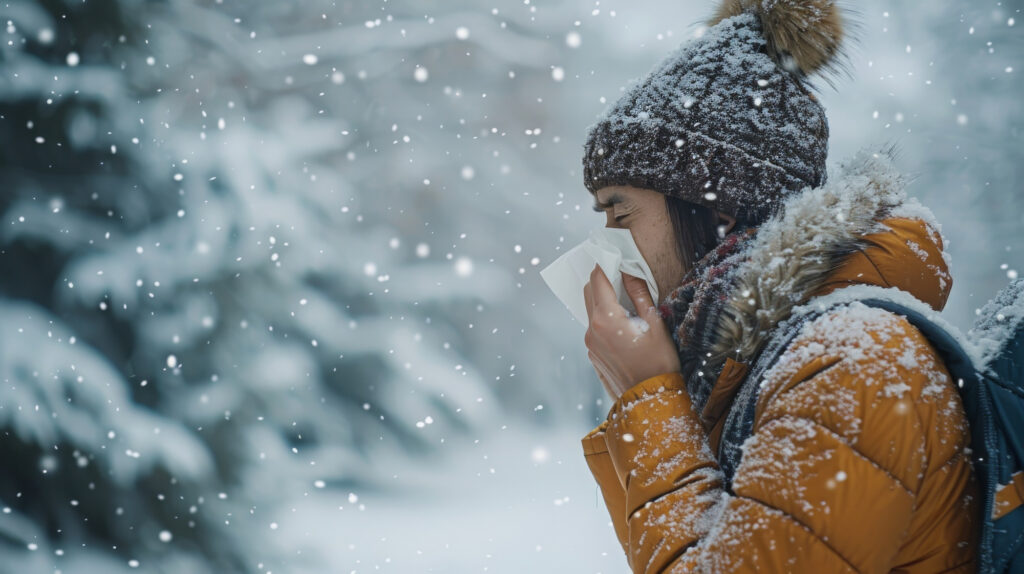During the winter season, the cold weather and lower humidity levels create conditions that can lead to the spread of various diseases. Here are some common diseases and health issues during winter:
Respiratory Diseases
- Common Cold: Caused by various viruses, leading to symptoms like runny nose, sneezing, sore throat, and mild fever.
- Influenza (Flu): A viral infection causing high fever, chills, muscle aches, cough, congestion, and fatigue.
- Bronchitis: Inflammation of the bronchial tubes, often following a cold or flu, leading to persistent cough, mucus production, and chest discomfort.
- Pneumonia: An infection of the lungs caused by bacteria, viruses, or fungi, leading to symptoms like cough, fever, difficulty breathing, and chest pain.
- Asthma: Cold air can trigger asthma symptoms such as wheezing, shortness of breath, and coughing in individuals with asthma.
Skin Conditions
- Dry Skin: Cold, dry air can cause the skin to become dry, itchy, and flaky.
- Eczema: Winter can exacerbate eczema symptoms, leading to red, inflamed, and itchy skin.
- Chilblains: Painful inflammation of small blood vessels in the skin, caused by exposure to cold air.
Other Common Winter Illnesses
- Norovirus: A highly contagious virus causing gastroenteritis, leading to symptoms like vomiting, diarrhea, and stomach cramps.
- Strep Throat: A bacterial infection causing a severe sore throat, fever, and swollen lymph nodes.
- Sinusitis: Inflammation of the sinuses, often following a cold, leading to facial pain, headache, and nasal congestion.
- Cold Sores: Outbreaks of herpes simplex virus can be triggered by cold weather, leading to painful blisters around the lips.
Joint and Muscle Pain
- Arthritis: Cold weather can worsen joint pain and stiffness in individuals with arthritis.
- Muscle Cramps: Cold temperatures can cause muscle stiffness and cramps.
Preventive Measures
- Maintain Good Hygiene: Wash hands frequently with soap and water to prevent the spread of germs.
- Stay Warm: Dress in layers and keep your home warm to avoid cold-related illnesses.
- Stay Hydrated: Drink plenty of fluids to keep the mucous membranes moist and help fend off infections.
- Eat a Balanced Diet: Boost your immune system with a diet rich in fruits, vegetables, and whole grains.
- Get Vaccinated: Ensure you are up-to-date with vaccinations, especially the flu vaccine.
- Humidify the Air: Use a humidifier to add moisture to the air in your home, helping to prevent dry skin and respiratory issues.
- Exercise Regularly: Regular physical activity can help strengthen the immune system and improve overall health.
- Avoid Close Contact with Sick Individuals: Minimize exposure to people who are sick to reduce the risk of catching infections.
By taking these preventive measures, you can reduce the risk of common winter diseases and stay healthy during the colder months.





